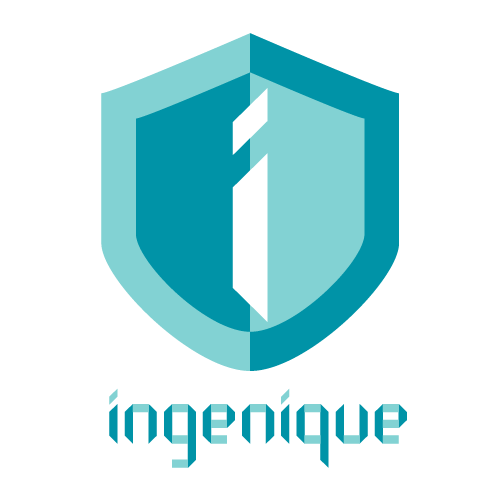
A recent landmark ruling by the Singapore High Court has sent a strong message to corporate service providers (CSPs), particularly those offering nominee director services. The court has established a stiffer sentencing framework for “silent” company directors who fail to exercise due diligence, with imprisonment now the presumptive sentence, starting at a minimum of four months for negligent nominee directors. This development emphasizes due diligence obligations to nominee director and underscores the critical need for rigorous AML/CFT compliance in Singapore’s corporate ecosystem.
This article explores the implications of this ruling for industries providing nominee director services, including corporate service providers (CSPs), accounting and professional services and law firms, offers practical advice on strengthening AML/CFT practices, with a focus on due diligence, and how AML/CFT solutions can empower these regulated sectors to meet these heightened regulatory expectations.
The High Court Ruling: A Wake-Up Call for Nominee Directors
In April 2025, the Singapore High Court set a new precedent for “silent” directors—those who are paid to act as nominee directors but fail to oversee the companies they represent. The case involved two directors who offered services to incorporate 384 and 186 companies, respectively, but without exercising control or monitoring their activities. This negligence resulted in scam proceeds exceeding US$2.4 million to flow through bank accounts of two companies. The court overturned an earlier fine, imposing a 10-month jail term and establishing imprisonment as the default penalty for such offenses.
The judges emphasized that directors who “abdicate their duty” pose significant risks to Singapore’s corporate and financial ecosystem. The ruling shifts the burden onto nominee directors to justify why imprisonment should not apply, highlighting factors such as the extent of due diligence, the scale of negligence, and the harm caused to Singapore’s reputation as a financial hub. This decision aligns with Singapore’s broader efforts to combat money laundering, as evidenced by recent legislative changes and enforcement actions targeting corporate structures abused for illicit purposes.
Sentencing Framework: Key Factors and Guidelines for Nominee Directors
The High Court outlined a non-exhaustive list of factors to guide sentencing for offenses under Section 157(1) of the Companies Act, focusing on the degree of negligence and its consequences:
- Extent of due diligence taken by the director in relation to the company’s activities and/or client
- Efforts made by the director to monitor the company’s bank transactions
- Extent to which the director knew or should have known that failing to oversee the company affairs could or would enable abuse
- Duration of offending
- Whether the offence was pursued as part of a business or other profit-driven scheme
- Whether the director tried to conceal wrongdoing
- Whether there was a transnational element to the offence
- Harm caused by the offence
Based on these factors, the court established three revised sentencing bands as guidelines:
- One to Three Factors: Up to 4 months’ imprisonment.
- Four to Five Factors: 5 to 8 months’ imprisonment.
- Six or More Factors: 9 to 12 months’ imprisonment.
These bands provide an indicative sentence, which the court may adjust based on offender-specific factors, such as genuine remorse, cooperation with authorities, or other mitigating circumstances. This structured yet flexible framework promotes consistent sentencing while emphasizing the critical need for proactive compliance among nominee directors and corporate service providers offering nominee director services.
Why This Matters for Corporate Service Providers (CSPs)
Corporate service providers (CSPs) offering nominee director services are now under greater scrutiny. In 2024, the Corporate Service Providers (CSP) Bill has been passed and requires all business entities carrying on a business of providing corporate services in and from Singapore to register with ACRA as registered CSPs and comply with anti-money laundering, countering the financing of terrorism and the proliferation of weapons of mass destruction (AML/ CFT/ PF) obligations, which includes conducting customer due diligence (CDD) and reporting suspicious transactions.
Along with this heightened regulation to CSPs, the High Court’s ruling amplifies the consequences of non-compliance, making it clear that negligence—whether intentional or reckless—will no longer be tolerated with mere fines.
The implications are profound:
- Legal Accountability
Nominee directors and the CSPs appointing them face heightened legal risks, including substantial fines and imprisonment for failing to fulfill directorship duties and AML/CFT obligations. - Reputational Risk
Negligent AML/CFT practices can damage a firm’s reputation, undermining trust and deterring legitimate clients in Singapore’s competitive market. - Operational Challenges
Rigorous due diligence and continuous monitoring requirements strain CSPs, especially smaller firms with limited resources, necessitating efficient compliance solutions.
Related Article:
- Click here to learn more about the unique AML/CFT risk of Concealment of Beneficial Ownership in the Corporate Service Provider (CSP) Sector.
- Check out this article to know more about the New CSP Bill in Singapore.
Practical AML/CFT Advice for Corporate Service Providers (CSPs)
To align with Singapore’s heightened regulatory expectations, CSPs must prioritize comprehensive AML/CFT practices, particularly in due diligence. Here are actionable steps to strengthen compliance:
1. Customer Due Diligence (CDD)
- Verify Customer Identities
Verify the identity of clients, including beneficial owners, using reliable sources like SentroWeb. This includes screening names and, where possible, photos against global watchlists, sanctions lists, and adverse media. - Understand Business Purpose
Document the client’s business model, company structure, sources of funds, and intended activities. Red flags include vague business descriptions or high-risk jurisdictions. - Risk-Based Approach
Categorize clients based on risk levels (e.g., politically exposed persons, complex corporate structures) and apply enhanced due diligence for high-risk cases.
2. Ongoing Monitoring
- Regularly review client transactions and activities for anomalies, such as large or frequent transfers inconsistent with the company’s stated purpose.
- Use automated tools to flag changes of higher risk levels and suspicious patterns, ensuring timely reporting to ACRA or the Suspicious Transaction Reporting Office (STRO).
3. Comprehensive Risk Assessment
- Institutional Risk Assessment
Conduct thorough risk assessments at at institutional level to identify and prioritize potential AML/CFT vulnerabilities. This includes evaluation of overall risks to the company across multiple dimensions, including customer risks, country or geographic risks, product or services risks, and transaction and delivery channel risks. - Periodical Risk Profile Updates
Regularly review and update risk profiles to reflect changes in risk factors, AML/CFT threats and regulatory requirements, as well as ensure relevance of risk mitigations for proactive compliance.
4. Training and Awareness
- Train staff on AML/CFT regulations, red flags, and the implications of the new sentencing framework.
- Stay updated on regulatory changes, such as Singapore’s recent law (e.g. CSP Bill) to ensure compliance.
5. Robust Record-Keeping
- Maintain detailed records of CDD, risk assessments, and monitoring activities for at least five years after terminating relationship with a customer, as required by ACRA.
6. Engage Technology Solutions
- Leverage AML/CFT software to streamline screening, monitoring, and reporting processes. Automated tools like SentroWeb can reduce human error and enhance efficiency, particularly for firms managing large client portfolios.
How AML/CFT Solutions Empower Corporate Service Providers (CSPs) for AML/CFT Compliance?
The complexity of modern AML/CFT requirements demands more than manual processes. CSPs need integrated solutions to manage risks effectively while maintaining operational efficiency. This is where advanced AML/CFT technology becomes indispensable.
SentroWeb® AML/CFT platform is specifically designed to meet the evolving needs of CSPs in Singapore. By leveraging tools like SentroWeb®, CSPs can streamline their processes and strengthen compliance:
- Screening (Names and Photos)
Utilize reliable databases for real-time screening against global sanctions lists, watchlists, and adverse media to verify the identities of customers easily. With advanced facial match function, CSPs can further detect fake IDs and fraud by comparing faces against the database for enhanced identity verification. - Customer Due Diligence (CDD)
Automate CDD processes to efficiently verify and record client identities, beneficial owners, and sources of funds, ensuring compliance with ACRA requirements.
- Ongoing Monitoring
Continuously monitor customer risk profiles with the most up-to-date databases, receiving alerts that reduce manual effort and enable timely action. - Risk Assessment
Implement dynamic risk scoring for clients based on multiple factors, allowing for a tailored, risk-based approach. - Dashboard for Risk Insights
Access a user-friendly interface that visualizes risks and provides insights for institutional risk assessment and compliance management. - Reporting and Record-Keeping
Generate compliance reports and securely store records, simplifying audits and regulatory submissions. - Training and Resources
Stay informed with notifications about AML/CFT news and regulatory changes, such as Singapore’s new sentencing framework, along with regular training to keep your firm ahead of the curve. - Seamless integration with Corporate Secretarial Management
Centralize and consolidate customer information within a single platform for both corporate secretarial management and AML/CFT compliance, reducing duplicated efforts.
By adopting a comprehensive AML/CFT solutions like SentroWeb®, CSPs can enhance their compliance capabilities and navigate the complexities of AML/CFT requirements more effectively. Click here to book a free demo and discover how SentroWeb® can empower your firm in achieving AML/CFT compliance.
Conclusion
The Singapore High Court’s new sentencing framework for negligent nominee directors is a pivotal moment for the corporate secretarial industry. It underscores the importance of active due diligence and robust AML/CFT practices to protect Singapore’s financial ecosystem. By adopting enhanced CDD, ongoing monitoring, comprehensive risk assessments, and technology-driven solutions, CSPs can not only comply with regulatory expectations but also strengthen their role as trusted gatekeepers.

About Ingenique Solutions
Ingenique Solutions Pte Ltd delivers Anti-Money Laundering & Know Your Customer (KYC) screening and due diligence solutions to help small businesses and large enterprises meet their AML/CFT compliance requirements. It is trusted by 2,000+ companies in Hong Kong, Singapore, Malaysia, China and Taiwan, including government Ministry/ Agency, public listed companies, and top leading firms in various sectors.
Recent Posts:
- AML/CFT Case Study: Money Laundering Through Gold Bars and Trade – Vulnerabilities and Risk Mitigation for DNFBPs
- Navigating AML/CTF Compliance in Australia: A Guide for Tranche 2 Entities Under the Amendment to the AML/CTF Act Effective 2026
- The New Corporate Service Providers Regulations and Guidelines: Top 3 Requirements and Compliance Steps CSP Need to Know



